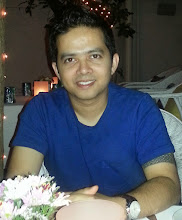By Book Or By Crook
The other day Kevin Arnold wondered what his father did and his mother said "Daddy is a manager." Now that is as good as telling my good friend, the neighbourhood chaiwallah, that I solve 24th order differential equations for a living. In fact if my father told me he was a manager, it would be as vague for me even today. Thank you Baba for being the "humble Professor". What is a manager? Isn't it all about managing people, relationships, perspectives, thought leadership and teamwork? I believe many of us (if not all) will agree that it is. How then should management be taught? There I go with my questions again!
As I have mentioned before and also promise to repeat many times over, every time life at XLRI gets close to the doldrums of regular B-school business, the students and/or the administration infuse in it a tinge of excitement. And what have you in life if you have not excitement! What can be better than a curriculum which lifts itself out of dullsville and enters the realm of fun. Learn team dynamics and crisis management as you raft across the Dimna reservoir, repose faith in your abilities as you rappel down a wall face - there is no better way to learn than an on-the face, in-the-water experience.
The disadvantages of XLRI's being located in the city of Jamshedpur are mentioned and discussed quite often. However, the advantages make for better discussion. Being close to a Tata company is one such advanatge. So you can very well understand what being in Tatanagar would mean. The Tatas, I have noticed, courtesy to being a Jamshedpur lad, are the frontrunners in corporate social responsibility. TISCO, for example, "also makes steel". In the meanwhile they establish beautiful and exemplary townships, care for the underpriviledged and provide schools and colleges like ours with resources we deem necessary for our growth and learning.
A few weeks back, the Tata Steel Adventure Foundation and XLRI School of Management collaborated to introduce a new and compulsory course for the students of the latter. Students were bussed off to a remote Santhal area on the banks of the Dimna lake. We, the Class of 2007, were taught to put up tents next to grazing goats, to dig our trenches to avoid rain, to take orders from the knowledgable and a whole lot of other things. Making a raft from tyre tubes, bamboo sticks and coconut ropes is an easy thing we learnt. What turned out to be tough (and impossible for those who got stuck in fishing nets) was to row the hellish invention to and fro the lake (boating needs skill I tell you!). And it is at times like these that one learns most - one person on the raft gives up rowing and homeward turns the floating miracle! Then there is confusion and mayhem as the ropes loosen, the tyres distance and in some unfortunate cases the raft turns into several pieces of floating litter. No better place to learn what life has to teach than this!
Then there is the issue of corporate social responsibility. This is something that one can be made to realize. But why wait till we're corporates, someone here wondered. So the curriculum expanded a step further. Several NGOs (some again from the Tatas) joined hands with our school and we packed bags to go live a night or two with the Santhals of Jharkhand. We went, fought with darnkess, mosquitos and possibly contaminated water to come back with learnings. Fortunately we had energetic NGO workers, great weather and the simple village folk on our side. The battle was won with ease.
Case studies, projects and questionnaires are excellent modes of education. But they cannot better what life can teach you even as you bat your eyelids. Luthans cannot tell us what our raft taught us and a whole course in Social Responsibility will not help us fathom what the tribal women of Kolebira need. I call for more of this - more of such out-under-the-open-sky modes in our school and also more schools to adopt these modes. Only then will India get best-equipped managers and Bharat get more responsible citizens!

